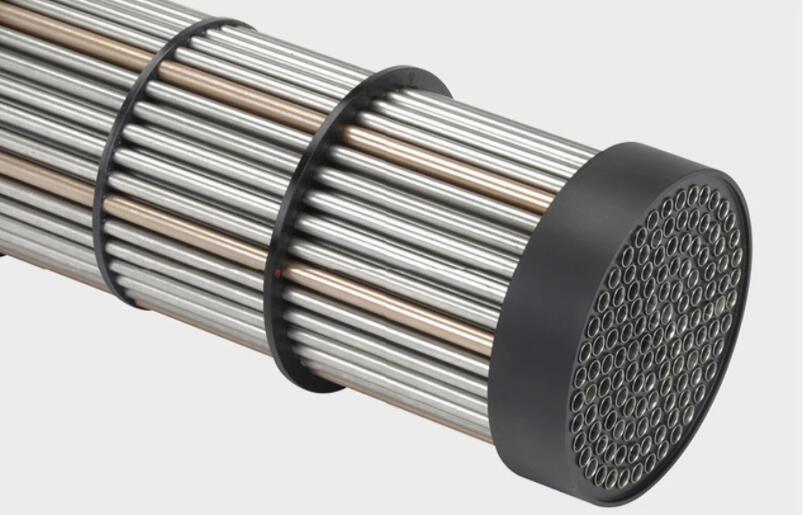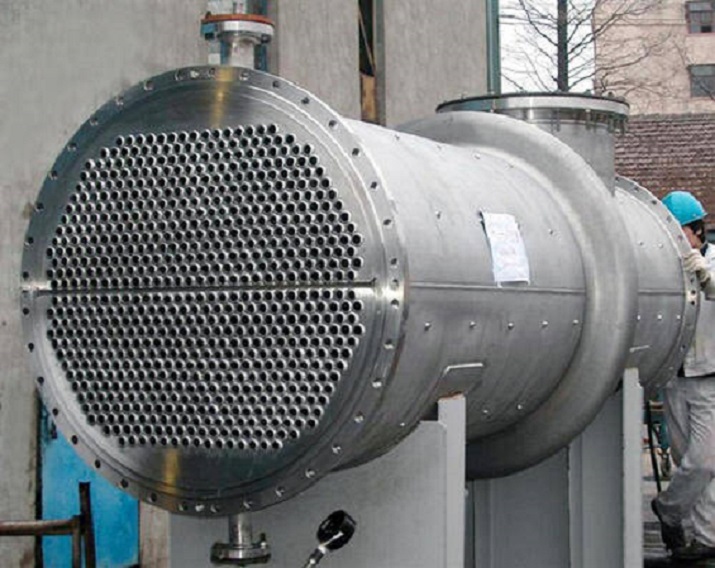Titanium Heat Exchangers

Titanium Heat Exchangers
The heat exchanger is a heat exchange device that transfers part of the heat of the hot fluid to the cold fluid, that is, the heat is transferred from the higher temperature fluid to the lower temperature fluid so that the fluid temperature reaches the specified index. In this article, we'll take a deeper look at the titanium heat exchangers.

Titanium Heat Exchangers
At present, the heat exchange tubes used in heat exchangers are mostly carbon steel tubes, and some nuclear power fields use stainless steel tubes. The initial investment in carbon steel pipes is relatively small, but the corrosion resistance is relatively poor. Generally, corrosion is prone to occur after 8 years of operation. Stainless steel pipes have strong corrosion resistance and can run for about 20 years. However, due to the poor chlorine corrosion resistance of stainless steel, it is difficult to meet the requirements of related fields.
The use of titanium to make heat exchangers has the following advantages:
1. Titanium has a high specific strength, which is beneficial to reduce the volume and weight of the equipment.
2. Titanium has good corrosion resistance. Even aqua regia is difficult to corrode titanium. Therefore, the tube wall can be designed to be thinner, which helps improve heat transfer efficiency.
3. Due to the low wettability of liquid to titanium, the condensation method on its surface is dropwise condensation. This type of condensation keeps the heat exchange surface updated and greatly increases the heat coefficient.
4. The titanium surface is smooth, easy to clean, and not easy to produce dirt.
With these advantages of titanium, titanium heat exchangers have been widely used in many fields.
1. Shipbuilding Industry
On ships, titanium heat exchangers have been used in evaporator heaters, air conditioning condensers, brine heaters, and brine preheaters for distillation devices, and engine jacket coolers. With the rapid development of the shipbuilding industry, the demand for titanium heat exchangers will maintain steady growth.
2. Nuclear Power Industry
Since the first condenser for power generation equipment made entirely of titanium tubes was put into operation in 1972, the use of this kind of titanium heat exchanger in nuclear power plants and thermal power plants has rapidly increased. In many large nuclear power plants, titanium heat exchangers are used for steam turbine condensers and equipment cooling water heat exchangers.
3. Marine Engineering
In the field of marine engineering, many countries attach great importance to the application of titanium heat exchangers and titanium evaporator devices. According to reports, the amount of titanium used for drilling in European coastal oil and gas fields has accounted for 19% of the total industrial use of titanium.
4. Desalination
Titanium is the preferred material of the seawater desalination equipment heat exchanger.
Conclusion
Thank you for reading our article and we hope it can help you have a better understanding of the titanium heat exchangers. If you want to know more about titanium and titanium alloys, we would like to advise you to visit Advanced Refractory Metals (ARM) for more information.
Headquartered in Lake Forest, California, USA, Advanced Refractory Metals (ARM) is a leading manufacturer & supplier of refractory metals across the world, providing customers with high-quality refractory metals & alloys like titanium, titanium alloys, tungsten, molybdenum, tantalum, rhenium, and zirconium.
{{item.content}}
LEVE A REPLY
{{item.children[0].content}}
{{item.content}}






